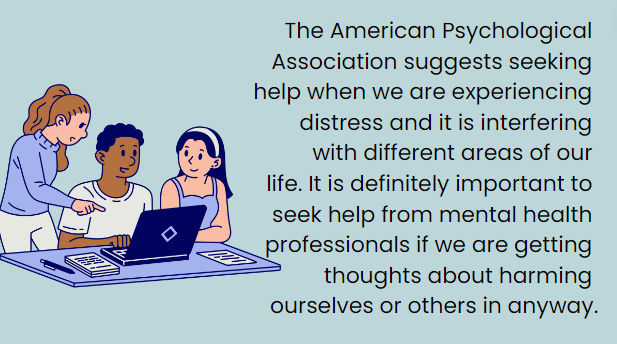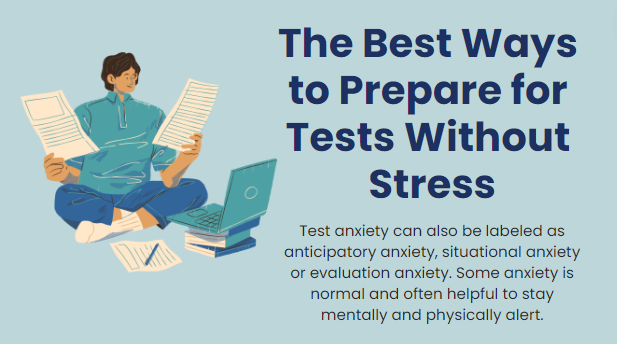Are you feeling overwhelmed by upcoming exams? Don’t worry! This comprehensive guide will show you how to prepare for tests effectively while keeping stress at bay. We’ll explore proven strategies, time management techniques, and self-care practices that will help you ace your exams with confidence.
1. Start Early and Create a Study Plan
One of the best ways to reduce test-related stress is to begin your preparation well in advance. Here’s how to get started:
- Identify all upcoming tests and their dates
- Break down your study material into manageable chunks
- Create a realistic study schedule, allocating time for each subject
- Set specific goals for each study session
By starting early, you’ll avoid last-minute cramming and feel more in control of your preparation.
2. Understand Your Learning Style
Everyone learns differently. Identifying your preferred learning style can help you tailor your study methods for maximum effectiveness:
| Learning Style | Characteristics | Effective Study Methods |
| Visual | Learns best through images, diagrams, and spatial understanding | Mind maps, color-coding, diagrams, videos |
| Auditory | Prefers listening and speaking to absorb information | Recorded lectures, group discussions, explaining concepts aloud |
| Kinesthetic | Learns through hands-on experiences and movement | Role-playing, experiments, physical models, flashcards |
| Reading/Writing | Excels with written information and note-taking | Summarizing texts, creating outlines, rewriting notes |
Once you’ve identified your learning style, incorporate appropriate study techniques into your routine.
3. Use Active Recall and Spaced Repetition
Passive reading is not enough to retain information effectively. Instead, try these active learning techniques:
- Practice active recall by testing yourself regularly
- Use flashcards or quiz apps to reinforce key concepts
- Implement spaced repetition by reviewing material at increasing intervals
- Teach concepts to others to solidify your understanding
These methods will help you retain information more effectively and for longer periods.

See also>> Why Networking is Key to Your Professional Growth: Unlocking Career Success Through Connections
4. Create a Conducive Study Environment
Your study space can significantly impact your focus and productivity. Here’s how to optimize your environment:
- Choose a quiet, well-lit area
- Minimize distractions (e.g., turn off notifications on your devices)
- Ensure your study space is comfortable but not too cozy
- Keep necessary supplies within reach
A well-organized study area can help you stay focused and reduce stress during your preparation.
5. Take Care of Your Physical and Mental Health
Maintaining your well-being is crucial for effective studying and stress management:
- Get enough sleep (7-9 hours per night)
- Exercise regularly to boost energy and reduce stress
- Eat a balanced diet rich in brain-boosting foods
- Practice relaxation techniques like deep breathing or meditation
Remember, a healthy body and mind are essential for optimal learning and test performance.
6. Use Effective Time Management Techniques
Proper time management can help you make the most of your study sessions and reduce stress:
| Technique | Description | Benefits |
| Pomodoro Technique | 25-minute focused work sessions followed by 5-minute breaks | Improves focus and prevents burnout |
| Time Blocking | Scheduling specific tasks for set periods | Enhances productivity and reduces procrastination |
| Eisenhower Matrix | Prioritizing tasks based on urgency and importance | Helps focus on high-priority items |
Experiment with these techniques to find what works best for you and stick to your chosen method consistently.
7. Practice with Past Papers and Mock Tests
Familiarizing yourself with the test format and types of questions can boost your confidence and reduce anxiety:
- Obtain past papers or practice tests for your specific exam
- Time yourself while taking practice tests to improve your pacing
- Review your performance and identify areas for improvement
- Focus on understanding your mistakes rather than just memorizing correct answers
Regular practice will help you feel more prepared and less stressed on test day.
See also>> The Remarkable Transformation of Your Life Through Gratitude
8. Seek Help When Needed
Don’t hesitate to ask for assistance if you’re struggling with certain concepts:
- Consult your teachers or professors during office hours
- Form study groups with classmates to share knowledge and insights
- Consider working with a tutor for personalized guidance
- Use online resources like educational videos or forums for additional explanations
Remember, seeking help is a sign of strength, not weakness.

9. Develop Effective Note-Taking Strategies
Good note-taking can make a significant difference in your study efficiency:
- Use the Cornell method or mind mapping for organized notes
- Review and summarize your notes regularly
- Create concise study guides from your notes
- Use abbreviations and symbols to capture information quickly
Well-organized notes can save you time and reduce stress during revision.
10. Stay Positive and Manage Test Anxiety
Your mindset plays a crucial role in test preparation and performance:
- Practice positive self-talk and visualization
- Focus on your progress rather than perfection
- Use anxiety management techniques like deep breathing or progressive muscle relaxation
- Remind yourself of past successes and your preparation efforts
A positive attitude can help you approach tests with confidence and reduced stress.
See also>> Simple Time Management Tricks for Busy Students: Mastering Your Schedule
FAQs
How long before a test should I start preparing?
Ideally, start preparing at least 2-3 weeks before the test, depending on its complexity and your familiarity with the subject.
What’s the best way to handle test anxiety?
Practice relaxation techniques, maintain a positive mindset, and ensure you’re well-prepared. If anxiety persists, consider speaking with a counselor or academic advisor.
How can I improve my focus while studying?
Minimize distractions, use techniques like the Pomodoro method, and ensure you’re well-rested and nourished.
Is it better to study alone or in a group?
Both have benefits. Studying alone can help with focused learning, while group study can aid in discussing concepts and filling knowledge gaps. Find a balance that works for you.
How can I retain information better?
Use active recall techniques, spaced repetition, and teach concepts to others to improve retention.
Conclusion
Preparing for tests doesn’t have to be a stressful experience. By implementing these strategies, you can create a balanced, effective study routine that boosts your confidence and academic performance. Remember to start early, understand your learning style, practice active recall, and take care of your overall well-being. With the right approach, you’ll be well-equipped to tackle any test that comes your way.
